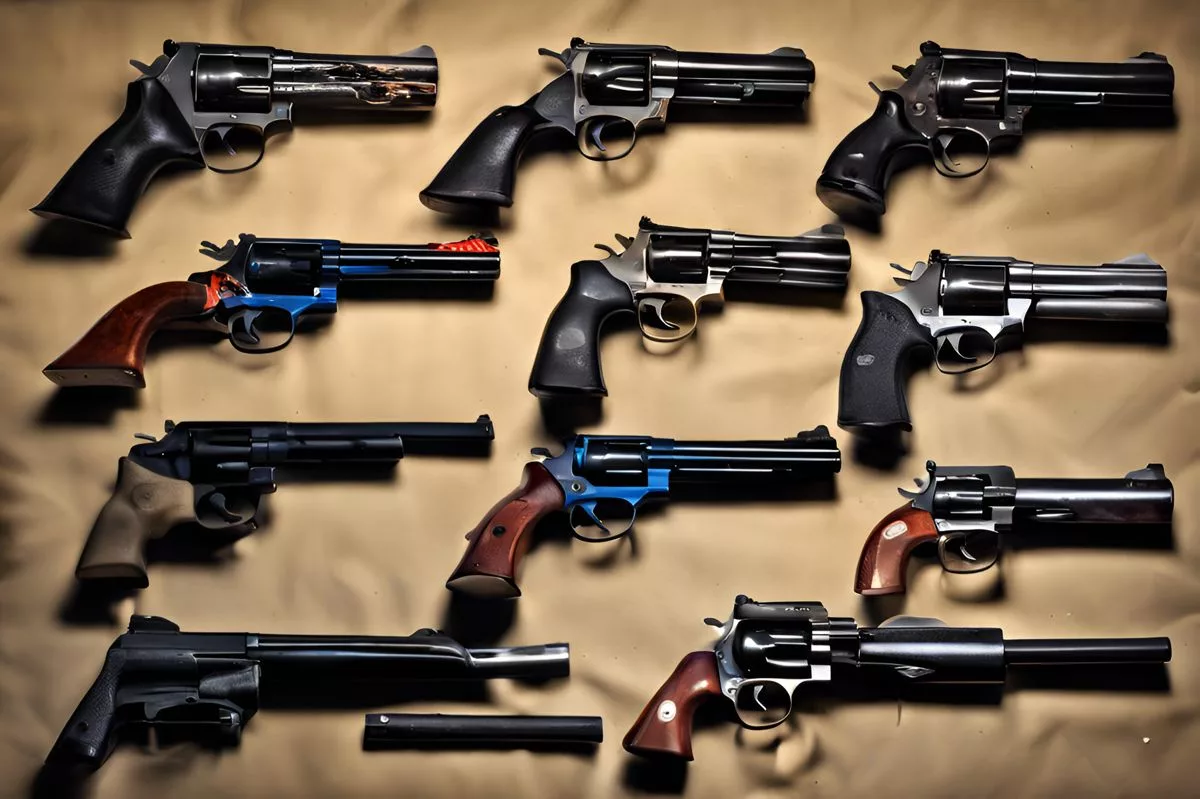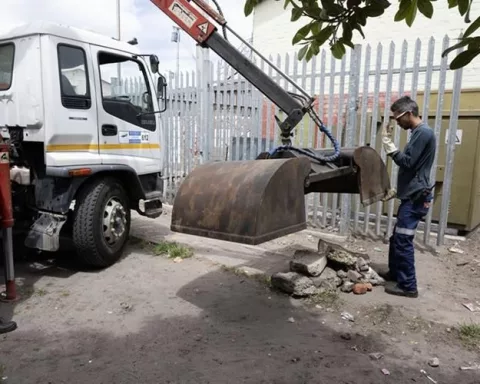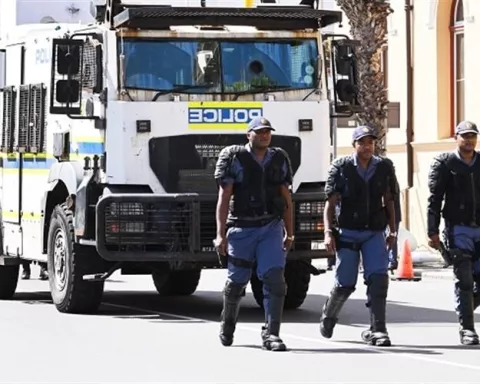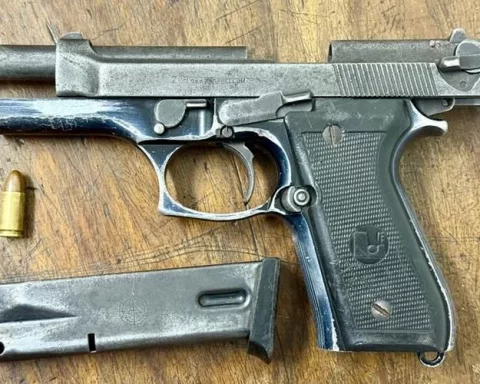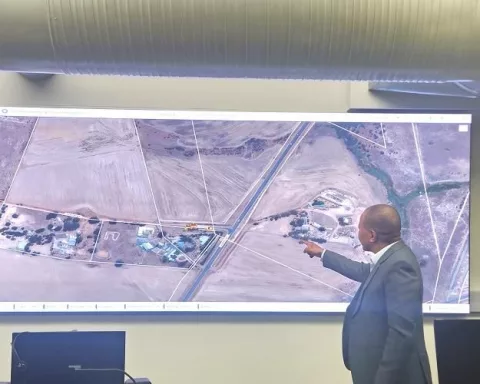Eradicating illegal firearms is vital for making our communities safer and cutting down crime. These weapons are often used in serious crimes like robberies and assaults, so stopping their spread is crucial. A recent arrest in Maclear highlights the importance of this fight, as law enforcement seized dangerous guns and ammunition from a suspect. By working together and using smart strategies, police can tackle the problem of illegal firearms and help build trust in the community. To truly make a difference, everyone must play a part in supporting these efforts for a safer future.
Why is eradicating illegal firearms essential for society?
Eradicating illegal firearms is crucial for enhancing public safety and reducing crime. These weapons are often linked to armed robberies and assaults. By disrupting illegal firearm networks and ensuring effective prosecution, communities can lower violence rates and foster a safer environment for everyone.
A Notable Arrest and Its Implications
Recently, law enforcement authorities made a significant breakthrough by apprehending a 45-year-old individual in Maclear, Eastern Cape. This suspect faced charges related to the illegal possession of prohibited firearms and ammunition. Ian Cameron, the Chairperson of the Portfolio Committee on Police, praised this arrest, emphasizing the critical necessity of increasing efforts to eliminate illegal firearms from our communities.
Cameron’s remarks bring attention to a pressing issue: the widespread presence of illegal firearms in society. These weapons often serve as the tools of choice for various criminal activities, ranging from armed robberies to deadly assaults. Although this arrest marks a small victory, it plays a crucial role in a broader campaign aimed at enhancing public safety.
The investigation leading to the arrest showcased a collaborative effort among multiple agencies. The Directorate for Priority Crime Investigation Cash-In-Transit Task Team, Joe Gqabi Crime Intelligence, the Tactical Response Team, and the Joe Gqabi and Khowa Local Criminal Record Centres worked together seamlessly. They successfully confiscated one Norinco pistol, two AK-47 rifles, magazines, and ammunition. This operation underscores the importance of intelligence-led policing and inter-agency cooperation in tackling crime effectively.
Intelligence-Led Policing: A Strategic Approach
Intelligence-led policing represents a strategic, data-driven approach to crime prevention. By collecting and analyzing information, law enforcement can make more informed operational decisions. This method traces its roots back to the practices of 19th-century detectives who relied on informants and surveillance techniques. Although modern methods have become more advanced technologically, the fundamental principles remain the same. Community cooperation plays a pivotal role in this approach, fostering trust and ensuring smooth information exchange.
Rebuilding trust between law enforcement and the community is essential. Historically, this relationship has often been strained, a reality not unique to South Africa but seen globally. Reestablishing this trust requires consistent, transparent, and community-focused policing. Positive interactions, such as community meetings and joint problem-solving initiatives, can bridge the gap and foster mutual respect.
Ian Cameron also highlighted the importance of effective prosecution in combatting illegal firearms. Arrests alone are insufficient if the judicial system does not follow through. Ensuring that those who possess and distribute illegal firearms face appropriate consequences is crucial. This not only punishes the offenders but also serves as a deterrent to others who might engage in similar activities. The judicial process must be swift and resolute to convey a clear message: illegal firearm possession will not be tolerated.
Disrupting the Market for Illegal Firearms
Addressing the issue of illegal firearms extends beyond arresting individual offenders; it necessitates dismantling entire syndicates. These groups operate sophisticated networks to smuggle firearms into the country and distribute them to criminals. Infiltrating these networks requires strategic planning and significant resources. Law enforcement agencies must employ undercover operations, surveillance, and informant-based intelligence to disrupt these operations effectively.
Historical efforts to combat organized crime, such as the Mafia in mid-20th-century America, offer valuable lessons. Law enforcement agencies adopted multifaceted strategies, including surveillance, informants, and legal innovations like the Racketeer Influenced and Corrupt Organizations (RICO) Act. These efforts eventually led to significant breakthroughs. Similarly, tackling illegal firearm syndicates requires innovative approaches and unwavering commitment.
While the recent arrest in Maclear is a positive step, it is just one small piece of a larger puzzle. Each confiscated firearm represents one less potential tool for criminal activity. The cumulative effect of such arrests can significantly reduce the prevalence of illegal firearms in our communities. However, this requires sustained effort and unwavering vigilance from all stakeholders involved.
Historical and Cultural Context of Firearm Regulations
Examining the historical context of firearm regulations provides valuable insights. In the early 20th century, many countries began to recognize the dangers posed by unregulated firearms. For instance, the United Kingdom’s Firearms Act of 1920 was one of the first comprehensive attempts to control firearm distribution. Its primary aim was to prevent criminals and other dangerous individuals from obtaining weapons. Over time, many other countries adopted similar measures, acknowledging that effective firearm control is essential for public safety.
Art also offers a unique perspective on society’s relationship with firearms. From Picasso’s “Guernica” to Goya’s “The Third of May 1808,” artists have depicted the devastating impact of armed conflict and violence. These works serve as poignant reminders of the consequences of unchecked firearm proliferation. They challenge us to reflect on the human cost of violence and the urgent need for effective regulation.
In a broader cultural context, literature has explored themes related to firearms and violence. Works like Ernest Hemingway’s “For Whom the Bell Tolls” and Gabriel García Márquez’s “One Hundred Years of Solitude” delve into the complexities of conflict and the pervasive threat of violence. These narratives offer profound insights into the human experience, emphasizing the need for societies to move away from violence and toward peace and stability.
The Path Forward
The recent arrest in Maclear serves as a step in the right direction, but it is merely one part of a much larger endeavor. The battle against illegal firearms demands comprehensive strategies, historical awareness, and cultural sensitivity. Law enforcement agencies must remain vigilant, employing intelligence-led policing and fostering community cooperation. The judicial system must ensure swift and effective prosecution to deter potential offenders. Society, informed by historical and cultural insights, must continue to advocate for action and support efforts to eradicate illegal firearms. This multifaceted approach, grounded in historical precedent and cultural understanding, offers the best hope for a safer, more peaceful future.
By addressing illegal firearms through these diverse and comprehensive measures, society can work towards creating an environment where public safety is paramount, and the threat of violence is significantly diminished. The combined efforts of law enforcement, the judiciary, and the community are essential in achieving this goal, ensuring a more secure and harmonious future for all.
FAQ on Eradicating Illegal Firearms
Why is eradicating illegal firearms essential for society?
Eradicating illegal firearms is crucial for enhancing public safety and reducing crime. These weapons are often linked to armed robberies and assaults. By disrupting illegal firearm networks and ensuring effective prosecution, communities can lower violence rates and foster a safer environment for everyone.
What recent actions have been taken against illegal firearms?
A significant recent action involved the arrest of a 45-year-old individual in Maclear, Eastern Cape, who faced charges related to the illegal possession of prohibited firearms and ammunition. This operation resulted in the confiscation of dangerous weapons, including two AK-47 rifles, underscoring the importance of law enforcement efforts in combatting illegal firearms.
How does intelligence-led policing contribute to fighting illegal firearms?
Intelligence-led policing employs a strategic, data-driven approach to crime prevention. By collecting and analyzing information, law enforcement can make informed operational decisions. Community cooperation is vital in this approach, fostering trust and facilitating communication, which is essential for disrupting illegal firearm networks.
What role does the judicial system play in combatting illegal firearms?
The judicial system is crucial in ensuring that individuals who possess or distribute illegal firearms face appropriate consequences. Swift and effective prosecution not only punishes offenders but also serves as a deterrent to others considering similar actions. This reinforces the message that illegal firearm possession will not be tolerated.
What challenges do law enforcement face in disrupting illegal firearm syndicates?
Disrupting illegal firearm syndicates involves dismantling sophisticated networks that smuggle firearms into the country. This requires strategic planning, significant resources, and the use of undercover operations and informant-based intelligence. Historical examples of organized crime show that multifaceted approaches are necessary for effective intervention.
How can the community support efforts to eradicate illegal firearms?
Community involvement is vital for the success of efforts aimed at eradicating illegal firearms. This can be done by fostering trust with law enforcement, participating in community meetings, and sharing information about suspicious activities. By working together, communities can play an active role in promoting public safety and supporting initiatives against illegal firearms.

